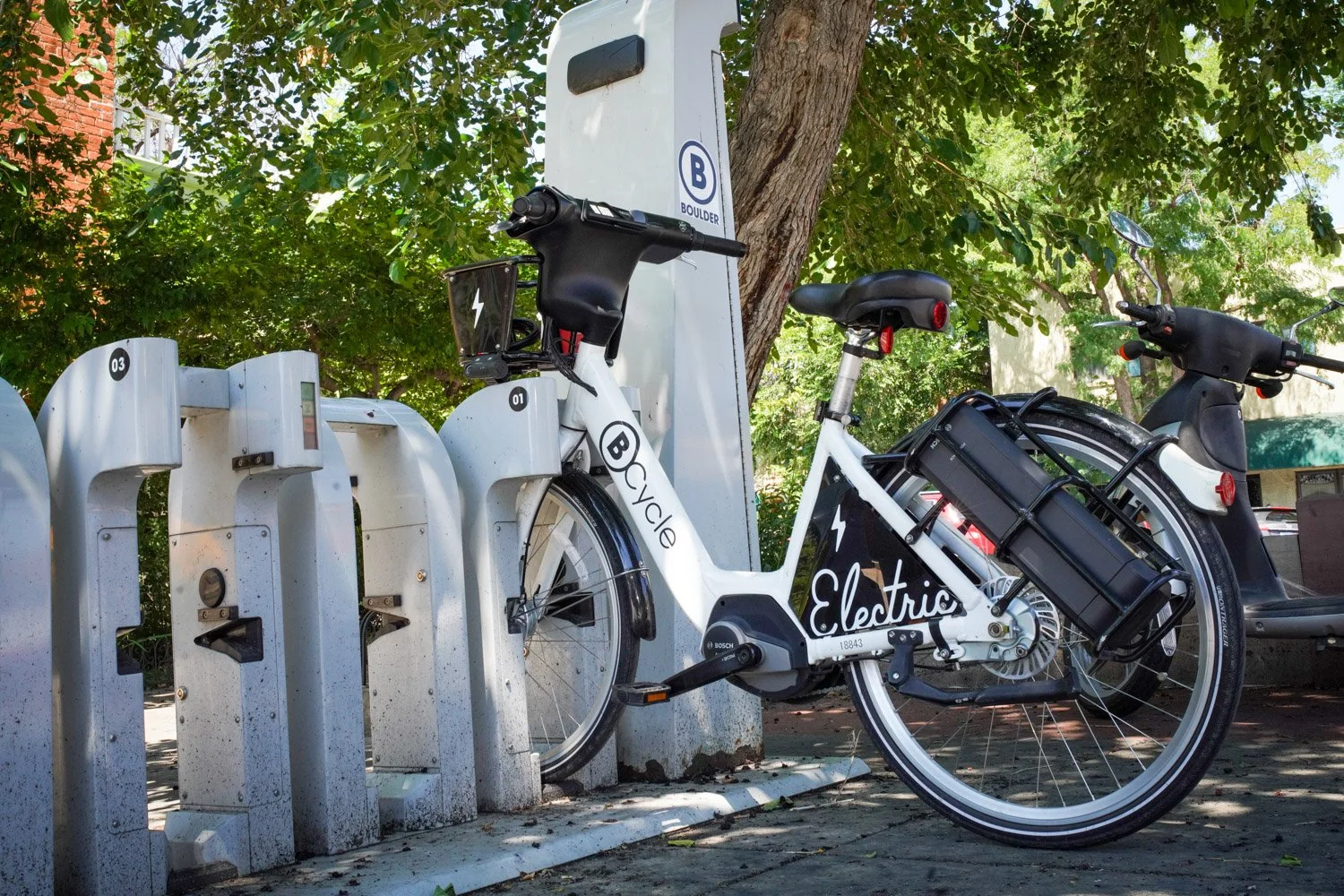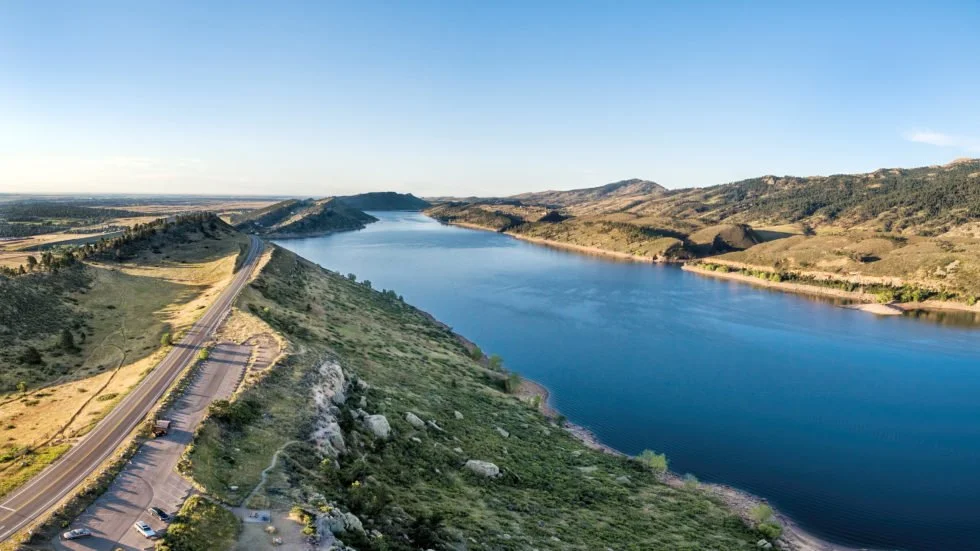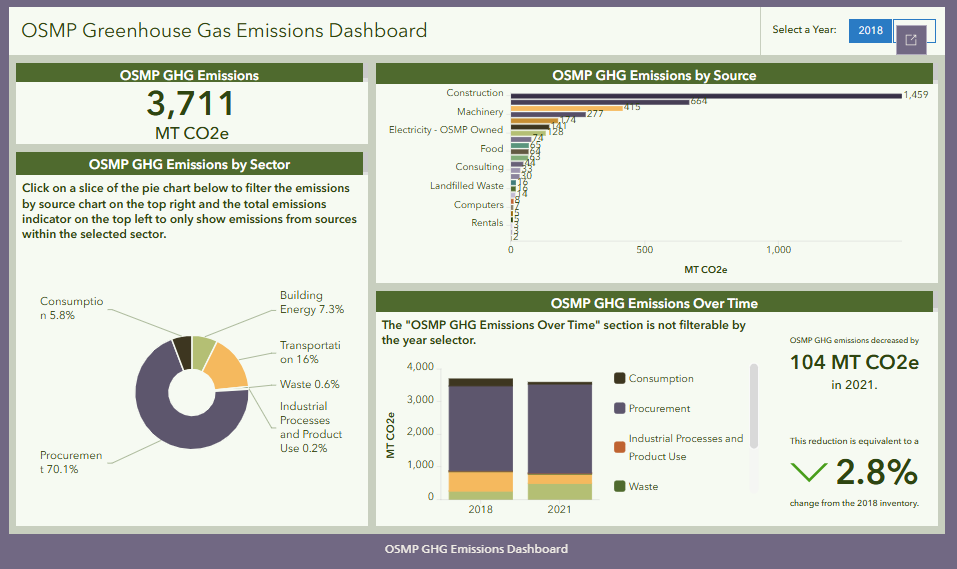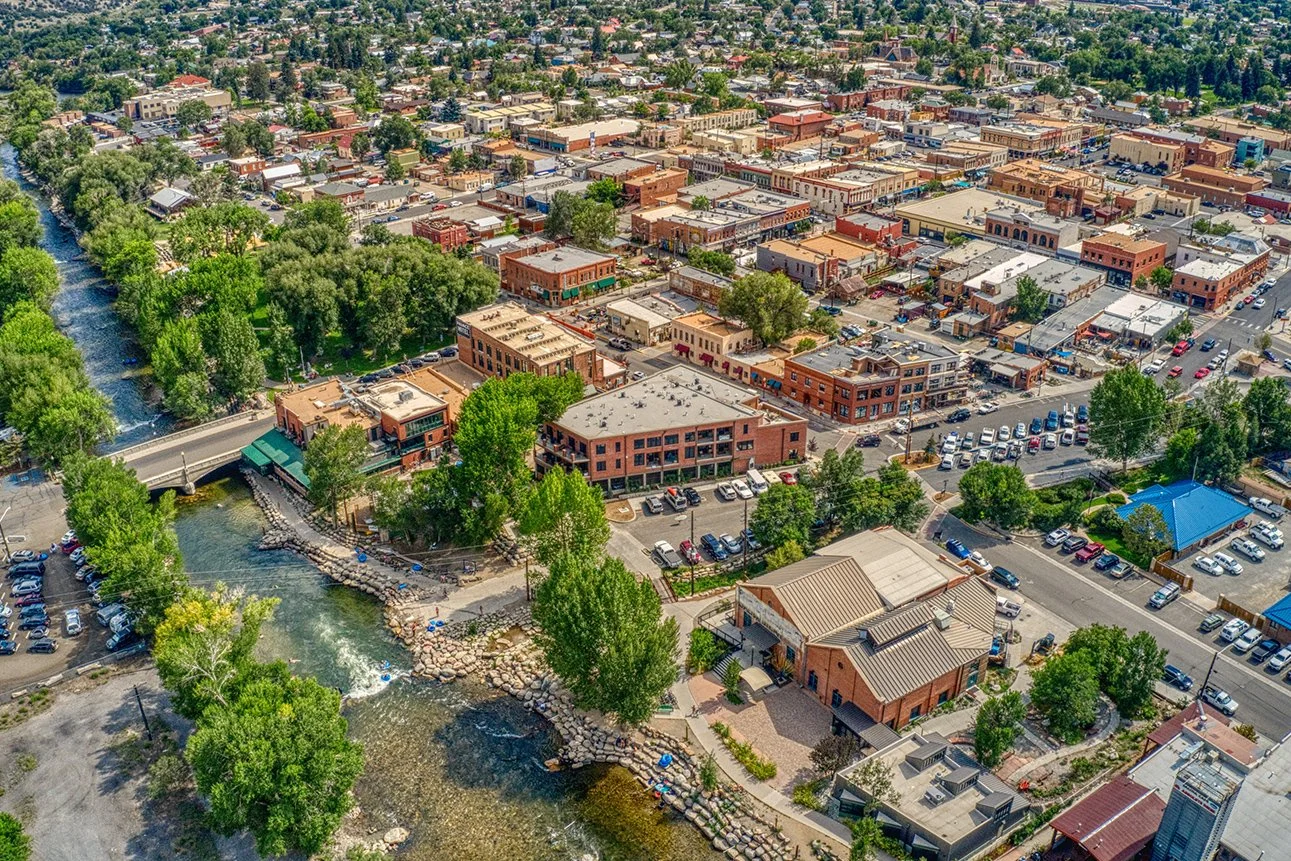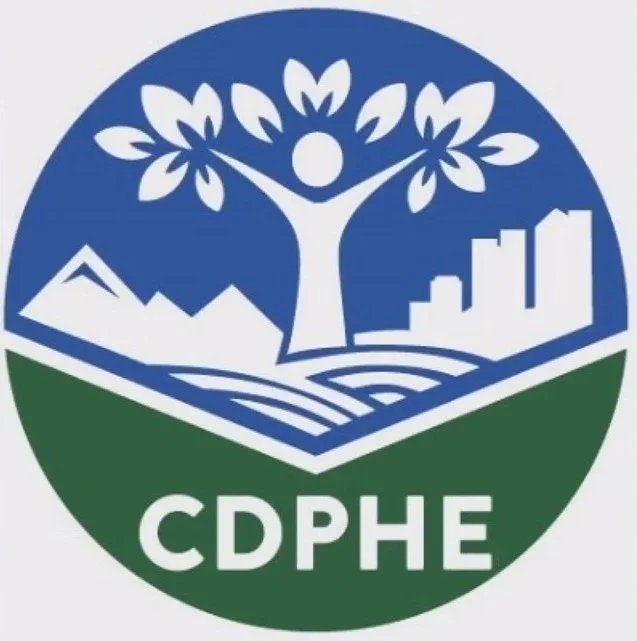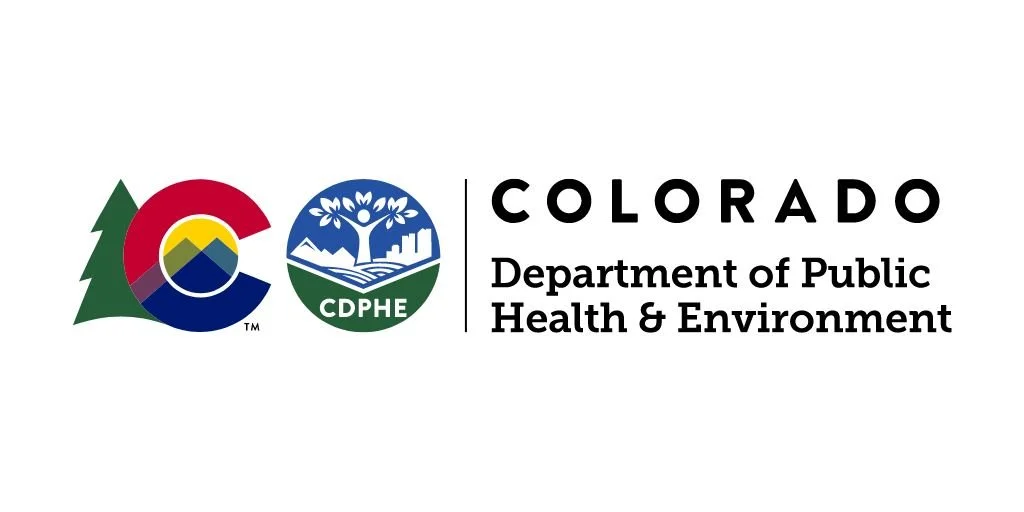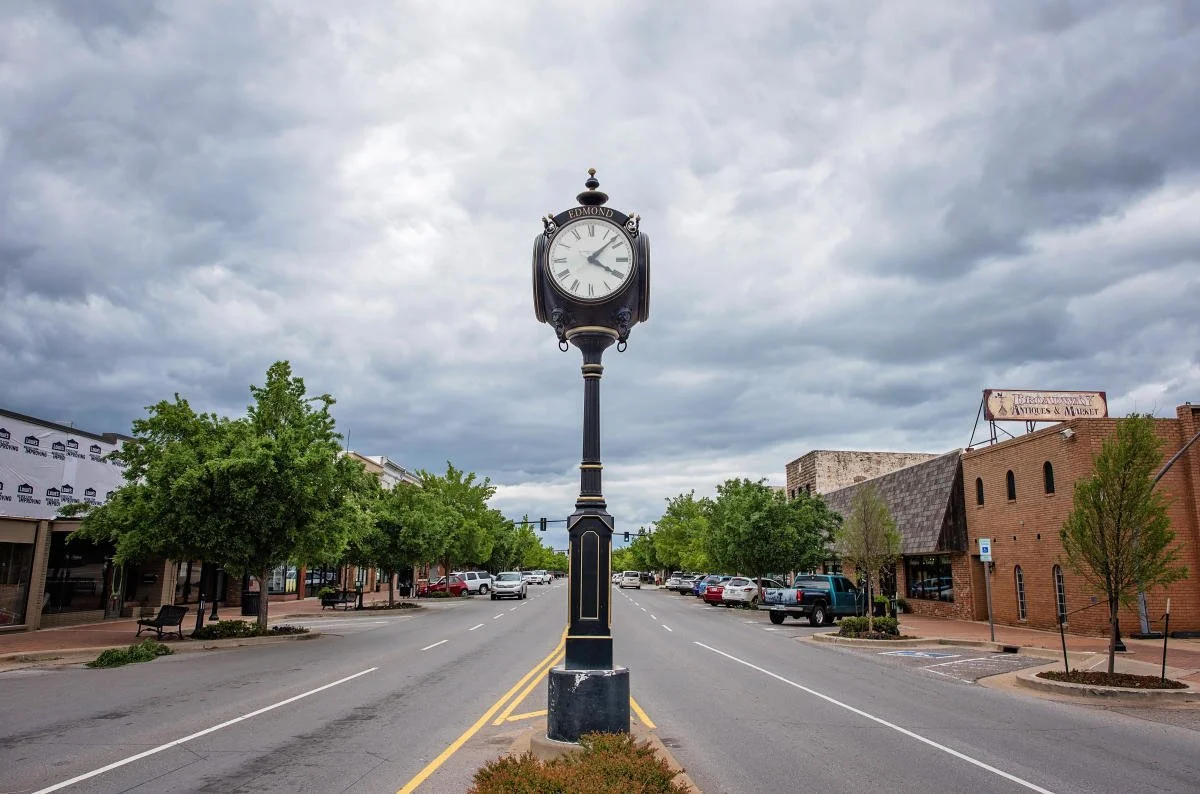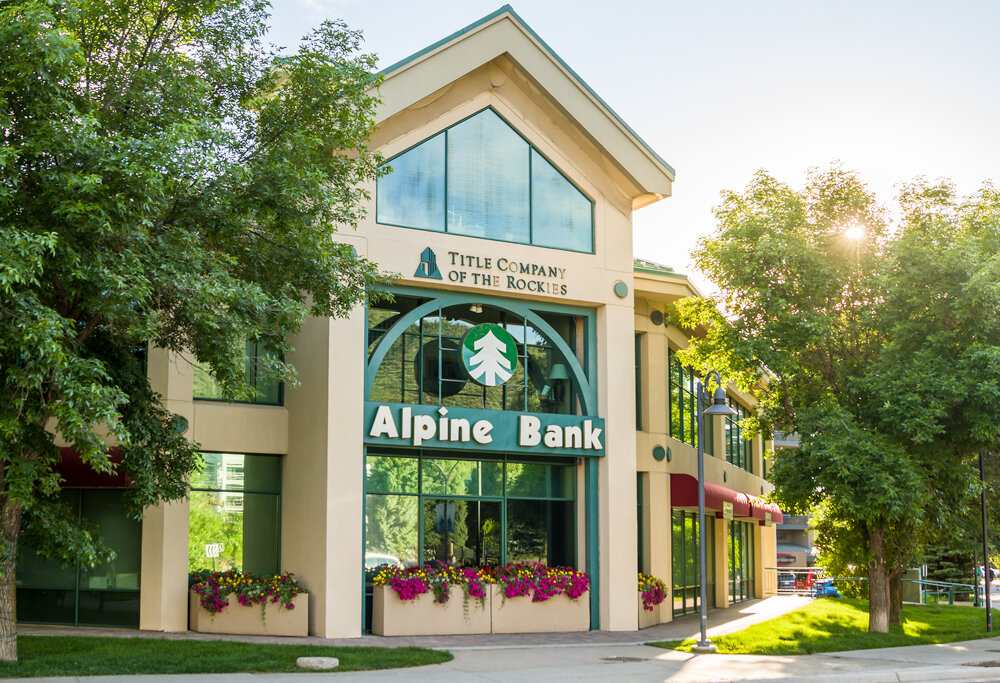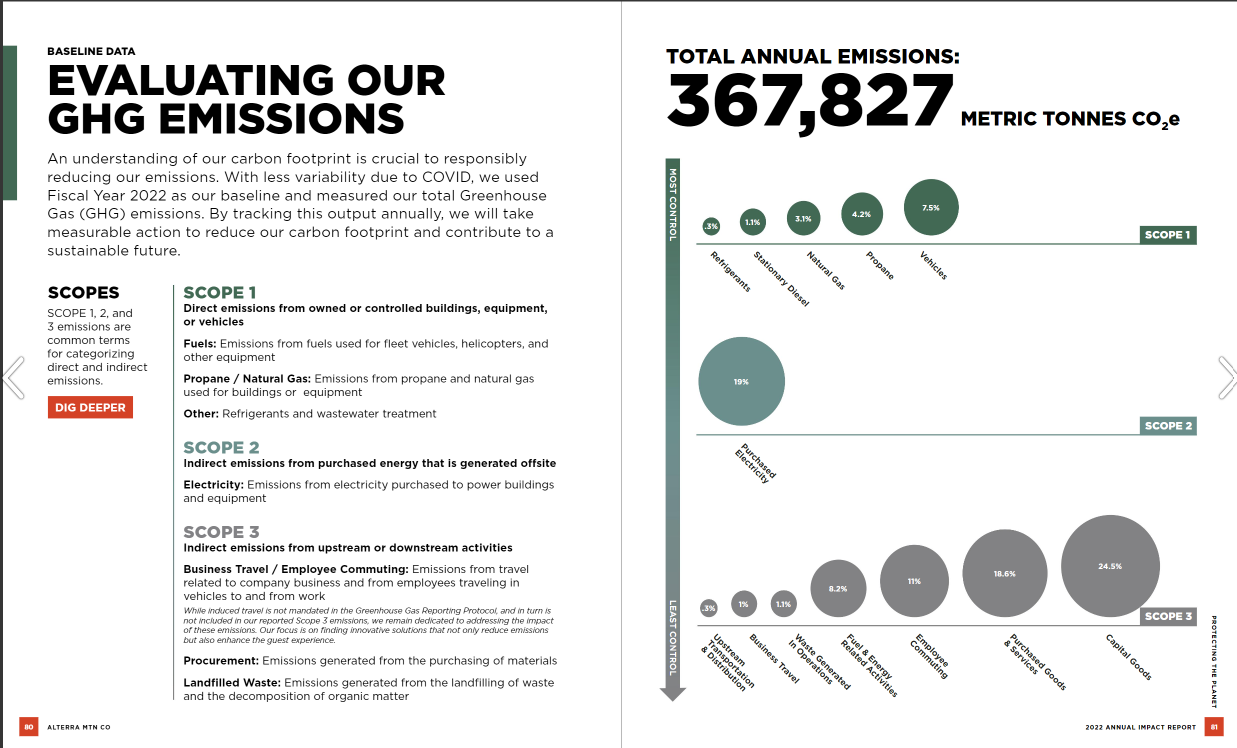City and County of Denver | E-Bike and Home Energy Rebate Program
E-Bike and Home Energy Rebate Program
Lotus contracted with Aptim and the City and County of Denver to conduct an impact analysis of the City’s e-bike and home energy rebate programs. Lotus conducted a series of stakeholder interviews to understand perspectives on program success, education, outreach strategies, and program challenges. Additionally, Lotus developed a series of surveys for each program targeted at program participants, rebate non-redeemers, and members of the community who had not engaged with the program. The purpose of these surveys was to identify key challenges, barriers, and opportunities from the programs. Lotus launched and analyzed the results of these surveys, developing digestible data visualizations that reported key findings. A slide deck was developed that included the survey results and maps tracking the spatial distribution of rebate program participation and key equity considerations. Finally, an impact summary report was developed highlighting findings from the interviews, surveys, and data analysis.
In 2024, Aptim contracted with Lotus to update the analysis completed in 2023. This update included developing a new series of maps tracking e-bike and home energy rebates using program data from 2023. Lotus developed a slide deck mapping rebate recipients by neighborhood, council district, and census tract. Maps showing the change in rebate recipients over time and maps overlaying rebate uptake with key equity data (language, income, heat vulnerability, etc.) were developed. Additionally, contractor participation in the e-bike and home energy rebate programs was mapped, highlighting areas with gaps in participation or contractors with limited participation. Finally, Lotus conducted a series of interviews with contractors identified as diverse suppliers. These interviews were conducted to understand any barriers or challenges that contractors face in the program and any opportunities to engage additional diverse suppliers.
Fort Collins, Colorado | One Water Facilitation
One Water Facilitation
Lotus has partnered with Fort Collins for two distinct projects with broad scope of engagement. The first project was for the Water Efficiency Plan Engagement and the Under-Resourced Buildings Engagement. For the former The City of Fort Collins partnered with Lotus to engage stakeholders during the development of the municipal utility’s Water Efficiency Plan. The purpose of engagement was to 1) understand which water conservation goals and strategies are most appropriate for the community and 2) understand the community’s needs and priorities, particularly those of equity-priority communities. The project team developed and executed a multifaceted engagement plan that included facilitating workshops with City staff, hiring community consultants to reach equity-priority communities, attending or creating community meetings and events, and developing a community-wide survey that was translated into Spanish.
In addition to utilizing a similar process outlined for Denver above, Lotus focused on engaging the pre-existing Climate Equity Committee, established from the City’s foundational climate action plan, Our Climate Future. The Committee agreed to hear from Utilities staff three times throughout the process and provided feedback on the engagement process. Lotus deployed this engagement best-practice to reduce the burden of participation on equity-priority communities, working instead with the set of citizens who had already agreed to serve the City.
Some of this group was tapped to provide feedback on an equity evaluation process to assess the strategies for their potential equity impacts that Lotus co-created. To create the evaluation, Lotus shared the draft process with eight community leaders and sought initial feedback to shape the final tool. Then, based on the feedback from these community leaders, Lotus updated the evaluation process to encourage the City to score the strategies in collaboration with community stakeholders. The Lotus team met with the Climate Equity Committee to score key Water Efficiency Plan strategies, per this best practice, to ensure the final analysis foregrounded the Fort Collins community’s priorities.
The equity evaluation methodology analyzes strategies based on the overall benefit to equity, assigning each strategy a score on a high-medium-low scale. The overall score estimates each strategy’s benefit to equity based on the assessment of potential impact on the five desired equity outcomes, including resilience and co-benefits, accessible participation, partnerships and investment, water burden, and community priority. These priorities were drawn directly from feedback from engagement, notably the informational interviews with community leaders and the community survey. A “high” score indicated the strategy had the potential to improve equity or serve equity-priority communities; a “low” score meant the strategy was unlikely to lead to better equity outcomes or does not serve equity-priority communities. This methodology is a pioneering example of a municipal utility’s efforts to incorporate equity into their strategic planning. In crafting the initial draft, Lotus could not find a similar evaluation process deployed elsewhere.
Boulder, Colorado | Open Space & Mountain Parks Department
Greenhouse gas inventories
Lotus worked with the OSMP department to create department-specific greenhouse gas emissions inventories, a business-as-usual GHG model, and a GHG reduction strategy model for 10 top strategies. In addition to the data work, Lotus also created a dashboard and storymap in ArcGIS online to communicate the results of the data work and to highlight the sustainability work that the department is undertaking. A final report was also written to provide more detail on results of the data work and to expand on the top GHG reduction strategies that were recommended to the department.
Trailhead Materials Embodied Carbon and Visitor Behavior Analysis
Lotus worked with the OSMP department to complete a two-phase analysis. The first phase analyzed the embodied carbon of frequently used materials at the department’s trailheads. Lotus also developed a matrix with metrics such as durability, resilience to fires and floods, and other qualities to help the department make well-informed decisions on material choices when doing maintenance and construction at trailheads. The second phase analyzed strategies that are available to help reduce the emissions associated with visitor travel and waste production. A matrix was developed that rates strategies on metrics including cost, greenhouse gas impact, success of implementation, etc. One strategy that OSMP implemented was to install cameras at high traffic trailheads in order to reduce the high amount of vehicular transportation emissions during trailhead commuting and prevent trail deterioration. Trailhead cameras allow the public to view parking space availability at trailheads ahead of time and plan accordingly.
The trailhead cameras are publicly available here.
“Lotus’ work was essential in creating an approach for Climate Ready Trailheads. Their work has helped us to reconsider how we design trailheads, how we get visitors to the trailhead, and how we maintain our trailheads and access points.”
Chaffee County, Colorado | Sustainable Development Plan
Chaffee County Sustainable Development Plan
Lotus worked with Chaffee County to create the first Sustainable Development Plan (SDP) for the County. This plan was designed to align with existing community plans, identify prioritized goals for sustainable development, determine immediate action steps to implement those goals, and create success tracking metrics. The Sustainable Development Plan included several key sectors of focus including Equity, Resilience, Water, Development, Energy, Transportation, Waste and Resources, Working Landscapes, Social Systems, and Recreation. Lotus conducted engagement with community experts in each focus area to inform the strategies and worked closely with a Steering Committee to review and finalize the plan.
Winter Park, Colorado | GHG Inventories and Climate Action Planning
Town of Winter Park, Colorado
Lotus worked with the Town of Winter Park to complete the first ever greenhouse gas emissions inventories for the town government and the community. In addition to creating these inventories, Lotus developed a business-as-usual emissions model and is modeling several emissions reductions strategies to aid in the Town’s development of its first Climate Action Plan. Due to the small size of the Town, many innovative methods were used to collect and manipulate data to make it relevant to the Town, such as working closely with Winter Park Resort and utilizing Streetlight vehicle miles traveled data.
Lotus also worked with the Town to complete its first ever Climate Action Plan. This will involve the development of a climate risk and vulnerability assessment, additional GHG emissions reduction strategy modeling, cost modeling, and strategy prioritization. Prioritization of the strategies will take into account factors such as cost to implement, GHG emissions impact, funding sources/availability, and equity impacts.
CDPHE | Water Quality Fee Setting Facilitation
Colorado dEPARTMENT OF pUBLIC hEALTH AND eNVIRONMENT
Lotus has been working with the Colorado Department of Public Health and Environment to facilitate a multi-year stakeholder engagement process to prepare the Water Quality Control Division for two rulemakings. As mandated by a bill passed in 2023, the Division must transfer their water quality fees from statute into regulation and update the drinking water and clean water fee structures to account for inflationary impacts and new service requirements.
For this project, Lotus has helped the Division organize its stakeholder engagement efforts and develop tools and processes to work towards consensus on stakeholder feedback, improve transparency in the Division’s decision-making, and help stakeholders new to the process get up to speed quickly. Lotus led monthly large stakeholder group meetings, including preparation of stakeholder communications, meeting agendas, presentations, minutes, and summaries. For the 2024 rulemaking process, Lotus also supported the Division’s bimonthly stakeholder subgroup meetings by providing guidance and feedback on meeting agendas and presentations, as well as taking minutes and providing meeting summaries to post publicly.
Ultimately this work culminated in Lotus assisting the Division in their preparations for the 2024 and 2025 rulemaking processes, management of a diverse array of stakeholders, and communication of a complex, technical subject matter.
Aspen, Colorado | C&D Waste Audit
Aspen, Colorado | Construction & Demolition Waste Audit
Construction and Demolition (C&D) debris management can be a considerable challenge for communities with limited landfill space and/or concerns about methane production in their landfill. Much of C&D debris is often bulky, heavy, and most importantly can be diverted from the landfill to be recycled or repurposed. The city of Aspen has taken this challenge head-on.
In January 2022, the Aspen City Council set a Science Based Target to reduce greenhouse gas emissions 63% by 2030 and net zero by 2050. They also set waste reduction targets to reduce organic material going to landfill by 25% by 2025 and 100% by 2050, and a reduction of all waste going to the landfill by 70% by 2050. While a typical landfill fee approach is to weigh the items going into a landfill, Aspen wanted to better calculate fees based on the environmental impact of C&D materials that should be diverted, but arrive at the landfill unsorted. Using a dataset of Embodied Carbon for materials and the U.S. Environmental Protection Agency’s Social Cost of Carbon, Lotus quantified the present cost of future environmental damage from the material’s life cycle of extraction, production, transportation, and ultimately disposal. Aspen is currently in the process of applying this metric to C&D debris that originates within the City of Aspen.
Edmond, Oklahoma | Resiliency Action Plan
Edmond Resiliency Action Plan
Lotus worked with the City of Edmond to create the city’s first Resiliency Action Plan. The plan centers city-level action around improving on current initiatives and incorporating new strategies that the city can implement to improve resiliency over the next five years. Informational interviews and dozens of focus groups helped inform existing conditions, resources, and programming in Edmond, as well as the desired future conditions for the city. All strategies were vetted and prioritized by Edmond staff. The final plan is a public-facing dashboard that will be regularly and easily updated via a google sheet that tracks KPIs. These metrics will ensure that Edmond knows it is on the right track to meet its goals.
Wheat Ridge, Colorado | Climate Action Plan Update
Climate action plan update
In 2024 Lotus worked with the City of Wheat Ridge to update and formally adopt their Sustainability Action Plan. The community was the impetus for the first Plan, which was created in 2018. Lotus led the strategic analysis of the 2018 plan, which involved a comprehensive review of relevant City plans, as well as regional, state, and federal plans and initiatives. This review allowed the client to utilize existing collaborations and funding to force-multiply their sustainability efforts. Lotus also engaged City staff and key stakeholders to contextualize the 2024 plan update and identify critical opportunities, and guided community engagement to garner community input on sustainability priorities and strategies. Lotus sought to capture the grassroots, community-driven spirit of the plan and ground the plan update in the key implementation details that City staff would champion.
Birmingham, Alabama | Sustainability Action Plan
Sustainability Action Plan
Lotus, alongside Hummingbird, are partnering to produce a Sustainability Plan that will promote efforts to adopt best practices that address equity, social justice, environmental justice, air quality, soil contamination, water quality and efficiency, water quantity, energy and resource use, placemaking and equitable land use, and community health. The plan will be grounded in sustainability that balances the triple bottom line of economic, social and environmental aspects.
The project will result in three key deliverables: 1) an inventory of existing conditions (socio-economic and energy efficiency and resource management inventories); 2) the development of a Sustainability Action Plan and; 3) the development of tools to monitor progress and evaluate results of implementing the action plan, including a vulnerability mapping tool that Lotus developed.
All of this work will be supported by an in-depth engagement plan including facilitating a Steering and Implementation Team composed of internal, City stakeholders and external, community stakeholders. Engagement will include a significant level of public outreach such as town hall–style meetings, focus groups, and a website set up for public comment.
Lafayette, Colorado | Sustainability Report
2021 Sustainability Report
Lotus wrote Lafayette’s 2021 Sustainability Report, communicating the progress Lafayette has made on the goals laid out in the City’s 2021 Sustainability Plan. This work included informational interviews with several Lafayette community members involved in sustainability work. Additionally data to track the progress toward each goal were collected, organized, and analyzed. The final report was designed to be data visualization and graphic heavy to effectively communicate results.
Denver Regional Council of Governments (DRCOG) | Climate Pollution Reduction Grant
Climate Pollution Reduction Grant
Lotus is currently working with DRCOG to fulfill the requirements of the agency’s $1 million Climate Pollution Reduction Grant (CPRG) from the Environmental Protection Agency (EPA). As part of this process, Lotus supported data collection, emissions calculations, modeling, stakeholder engagement, and strategy development and prioritization for DRCOG’s Priority Climate Action Plan. Currently, Lotus is supporting stakeholder engagement and related tasks to develop the regional Comprehensive Climate Action Plan.
To date, Lotus has led and facilitated multiple community and stakeholder engagements, and facilitated an equity subcommittee. Lotus conducted an all-day workshop that brought together representatives from communities across the 12-county region to organize implementation details for the eight PCAP strategies. The stakeholder engagement process that was deployed for the PCAP and will continue for the CCAP, has ensured that a broad constituency of community members from across the DRCOG region are engaged in, and empowered to participate in the resulting PCAP strategy implementation process. The creation and participation of the equity subcommittee as part of the PCAP process helped to ensure that the final implementation details for the PCAP strategies are informed by the communities that will be most impacted by this work.
DRCOG’s Priority Climate Action Plan was submitted to the EPA with the corresponding grant application for CPRG Implementation Funds. DRCOG secured grants funds for the Decarbonize DRCOG Program, the funding mechanism for the program related to this RFP and proposal.
YMCA of the Rockies | Sustainability Action Plan And Cost-Analysis
Sustainability Action Plan And Cost-Analysis
Lotus worked with YMCA of the Rockies to support the development of a Sustainability Action Plan that addressed the sustainability objectives of the YMCA of the Rockies strategic plan. The project actively engaged YMCA of the Rockies staff to foster a culture of sustainability within the organization and facilitate the implementation of effective climate action strategies. To support this work, Lotus conducted a comprehensive greenhouse gas emissions inventory of both campus locations, as well as emissions modeling of sustainability strategies to gain insights into YMCA of the Rockies' environmental footprint and which strategies would be most impactful. Furthermore, Lotus developed a cost evaluation of carbon emission reduction strategies for the YMCA of the Rockies. The strategies evaluated for implementation costs were also those that were modeled by the Lotus team for their anticipated carbon reduction impact. To ensure holistic implementation of the Sustainability Action Plan, Lotus worked with guest-facing staff to develop a Best Practice Guide and Lesson Plan for guest engagement in sustainability initiatives.
Finally, Lotus worked strategically with YMCA staff to bring forward a GHG reduction goal to the YMCA Board of Directors and Senior Leadership to ensure the plan and associated goal were aligned with the mission and values of YMCA of the Rockies and that the Board understood the responsibilities associated with setting a GHG target for the organization.
“Over the past year, YMCA of the Rockies has had the pleasure of working with Lotus on the creation of our comprehensive sustainability action plan. Through this process, Lotus has helped us to create a plan that aligns with our needs as a mission-based organization. Their thoughtful approach to creating a plan that encompasses all aspects of our needs has ensured that we are setting goals we feel confident in. From understanding our unique needs as a non-profit, to facilitating meaningful conversations with stakeholders of varying climate expertise, Lotus has successfully navigated through the process of developing a plan molded specifically to who we are as an organization. We are glad we chose to work with Lotus on such an important aspect of our mission.”
Larimer County | Climate Smart and Future Ready Implementation Plan
Climate Smart and Future Ready implementation plan
Lotus supported the development of the Larimer County Climate Smart and Future Ready implementation plan. This detailed roadmap defines how the County and its partners across the region will work towards climate mitigation and resiliency over the coming years. The implementation planning process included collaboration with entities across Larimer County through topical working groups, the completion of a series of GHG inventories to ensure that decisions were backed by data, and public outreach through a website, videos, and other channels. Lotus also conducted emissions and cost modeling to help Larimer county understand the implementation costs and anticipated carbon reduction impact for proposed strategies. The final roadmap and progress dashboard serves as a jumping off point to make significant progress to reduce GHG emissions, improve resiliency, and enhance the quality of life across Larimer County.
View the Social Pinpoint Site HERE.
“The Lotus Engineering & Sustainability team has been one of the most professional, most responsive, most flexible, and most positive consulting firms I have worked with. Sustainability and climate related projects are some of the most controversial and problematic to work on. Lotus was able to combine their proactive approach, really listening to me, the client, and the community partners, with technical expertise to make our project successful.”
Denver International Airport | Net Zero Emissions Plan
Net Zero Emissions Plan
Lotus completed a full QA/QC analysis of all past DEN greenhouse gas inventories. This work cumulated in a deeper understanding of recent reductions and increases in emissions and the creation of a process improvement plan to identify gaps and improve data collection. Alongside this work, Lotus completed research and interviewed staff to identify gaps, opportunities, and current and future successes. The result was a list of recommended strategies (High Impact Actions) to achieve our proposed science-based targets including:
Identifying possible activities and associated emissions reductions.
Identifying potential barriers including such as estimated costs; awareness/attitudes; countervailing priorities/projects; technology/scale limitations; areas outside of DEN control (Electric supply limitations); and areas where DEN has partial control (vendors).
Identifying potential tailwinds such as policy and regulatory changes; funding Increases; grant opportunities; partnerships; and City and County of Denver initiatives.
Deer Valley Resort | Climate Action Plan
Climate Action Plan
Lotus partnered with Deer Valley Resort to develop a climate action plan for their resort operations. The Deer Valley Climate Action Plan will help the resort address their operational carbon footprint, prioritize implementation strategies, and clearly communicate their climate action commitments to their visitors and staff. Lotus’s approach walked the client through the crafting of a set of prioritization metrics through which the resort can assess its next steps: from proactively addressing climate risks to tackling critical opportunities in their infrastructure to empowering staff to solve problems.
Lotus’s expertise in adapting climate plans to fit a specific culture, environment, and circumstance shines in this resort climate action plan. The scope of work includes workshops with the Senior Leadership Team, focus groups and informational interviews with staff, a site visit to meet with all resort departments, a business-as-usual emissions forecast, climate adaptation and mitigation strategies, and a designed climate action plan document.
Alpine Bank | Annual Sustainability Audit
Annual sustainability audit
Lotus has been collaborating with Alpine Bank since 2014 to help maintain and update Alpine Bank’s Utility Tracking Database on an annual basis, calculate emissions from facilities, and normalize energy use for the weather.
Lotus performs a quality check on Alpine Bank’s energy and water use tracking spreadsheet. The tracking spreadsheet has records of monthly electricity, natural gas, and water usage at all of Alpine Bank’s locations across the state of Colorado. Once a quality check is completed, Lotus reviews the results and errors found with the project team at Alpine Bank. Finally, Lotus writes a section reviewing the emissions and activity data trends across the organization to be included in the annual report.
“Hillary was tasked with creating a new Excel-based tool that empowered Alpine Bank’s energy managers to normalize energy data for weather from 2006 moving forward. The tool, which was designed to complement our internal energy tracking spreadsheet system, not only enables us to better understand our energy usage across our 38 locations but also helps us meet ISO 14001 goals, the results of which are published in our annual Environment Report. We continue to rely on Hillary as a key technical resource for various Alpine Bank sustainability initiatives. We highly recommend Lotus’s services for comparable projects.”
Alterra Mountain Company | GHG Inventory and Sustainability Strategies
GHG Inventory and Sustainability Strategies
Lotus developed greenhouse gas inventories for the 16 resorts owned by Alterra, Canadian Mountain Holidays, Alpine Aerotech, and Alterra’s Denver headquarters. Included in this was a detailed analysis of the emissions impact of visitor travel to the resorts. Lotus partnered with McKinstry to develop specific climate action strategies and an interactive Storymap detailing the results and recommendations. Lotus is currently updating the induced travel analysis for the latest fiscal year.
“Alterra Mountain Company is one company of many unique brands, and Lotus embraced the challenge of working effectively within our organizational structure. For each destination in the Alterra portfolio, the Lotus Team developed custom greenhouse gas inventories and inventory management plans using diverse data inputs. They synthesized complex data sets into manageable workflows that could be easily explained and replicated year over year. Guided by the incredible body of work from Lotus, we have been able to prioritize data-based actions that maintain the unique character of each destination and community, advance climate action policy, and aggressively reduce emissions. We are incredibly grateful to work with the Lotus Team and highly recommend them to other clients, especially those with complex operations.”
Boulder County | Net Zero Codes Cohort
Lotus provided project management and facilitation for the Boulder County Net Zero Codes Cohort, later renamed to the Northwest Metropolitan Regional Energy Code Cohort. The project included two phases: the first reviewed and adopted the 2021 International Energy Conservation Code (IECC) with regional consistent strengthening amendments, and the second created a regional roadmap for reaching 100% net zero new construction by 2030.
Phase 1
For Phase 1 of the project, Lotus facilitated a series of five meetings with eight community partners in the Northwest Metropolitan region of Denver to co-create consistent energy code amendments that could be adopted alongside the 2021 IECC to support local and regional climate goals. Equity, GHG reductions, and the needs of individual communities were discussed within the cohort while the group reached a consensus for the recommended code package. Phase 1 included code package development along with individualized community support to help each partner community with their code adoption process. Lotus worked with consultant partners Southwest Energy Efficiency Project (SWEEP) and Shums Coda throughout the project to develop the code package for the region along with supporting materials such as fact sheets, customized presentations, training materials, and other individualized support requested by each community. Lotus and the consultant team attended council meetings and study sessions with staff to ensure the code package was understood and could be adopted by each leadership council. The results of Phase 1 code adoptions for the region can be seen in the table to the left (as of February 2023).
Phase 2
Phase 2 of the project began the summer of 2022 with a goal of creating a roadmap of ranked local, achievable, affordable, and equitable policies and strategies to reach the goal of net zero new construction by 2030 for the region. For Phase 2, Lotus facilitated a series of eight meetings with ten communities to co-create a regional definition of “net zero new construction,” as well as a roadmap with a stepped approach to achieving net zero new construction by 2030. Equity and regional collaboration were strong themes throughout the discussions and the roadmap. The roadmap was written and designed by Lotus, with support from SWEEP and Shums Coda, and lays a foundation for continued regional coordination on future building code updates for each community involved.
The Boulder County Net Zero Code Cohort was funded by a Department of Local Affairs grant and created a framework in the state for regional collaboration on building codes which has been deployed in other areas of Colorado to support local communities with building code adoption.
City of Colorado Springs | Sustainable COS Plan
Lotus supported the development of Colorado Springs’ first Sustainability Action Plan. This data-driven and community-focused planning effort involved the integration of the City’s first community-wide and municipal greenhouse gas emissions inventories, the analysis of current and past planning efforts in the City and region, and the engagement of a wide network of Colorado Springs’ staff, stakeholders, and partners to identify measurable and actionable strategies and actions that the City can take to enhance sustainability across the community. Equity considerations were woven throughout the process, with specific strategies and actions focused on improving access to resources and forthcoming development opportunities in disproportionately impacted communities across Colorado Springs. The final plan was a graphically designed document that informs the City and its partners on the work to be done over the next 5-10 years. In 2023 Lotus will be completing emissions strategy modeling to determine the greenhouse gas emissions impact of the strategies within the Sustainability Action Plan.
The Sustainability Action Plan focuses on ten sustainability elements:
Equity
Agriculture and Food Availability
Natural Environment, including ecological health, water, and air quality
Built Environment
Energy
Materials Management
Transportation
Economic Development
Health and Well-Being
Arts and Culture.
Lotus facilitated focus groups for each of the 10 elements to help draft the narrative that will be integrated into the City’s Plan.

